Handwriting Skills Math Worksheets for Ages 4-6
6 filtered results
-
From - To
Enhance your child's handwriting skills with our engaging Math Worksheets designed for ages 4-6. These fun, interactive worksheets focus on developing fine motor skills and letter formation while integrating basic math concepts. Each printable activity encourages kids to trace numbers, practice writing, and solve simple maths, creating a seamless blend of handwriting and mathematical learning. Perfect for preschool and early elementary students, these worksheets promote confidence and skill mastery. Boost your child's learning experience with our thoughtfully crafted resources that make handwriting practice enjoyable and effective. Start building a strong foundation in both math and writing today!
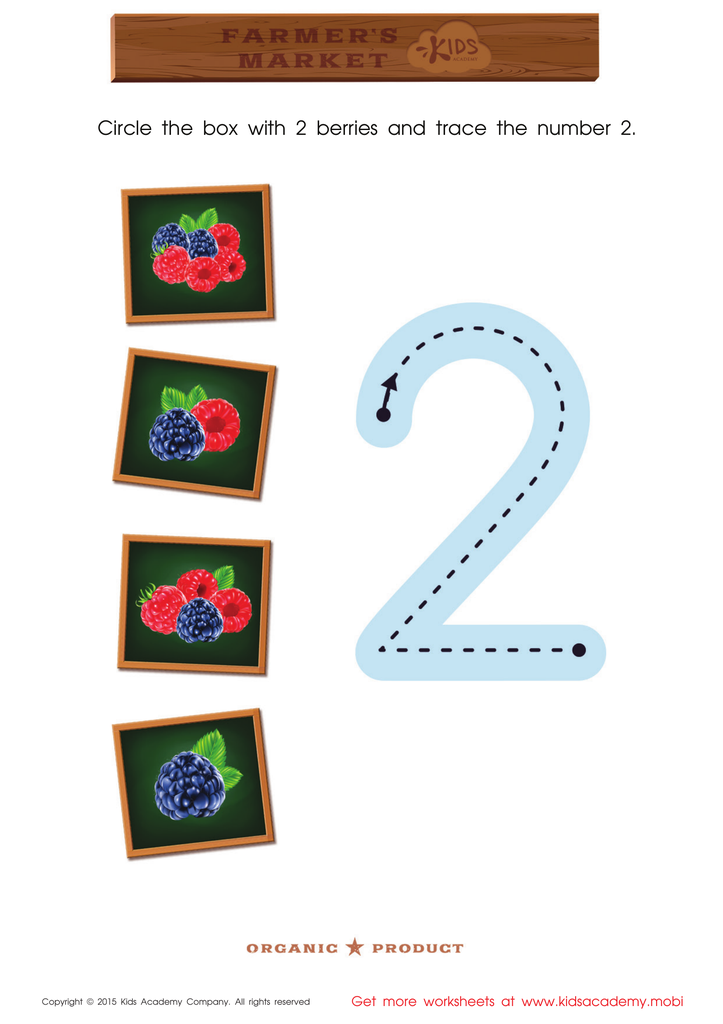

Count the Berries and Trace the Number 2 Printable
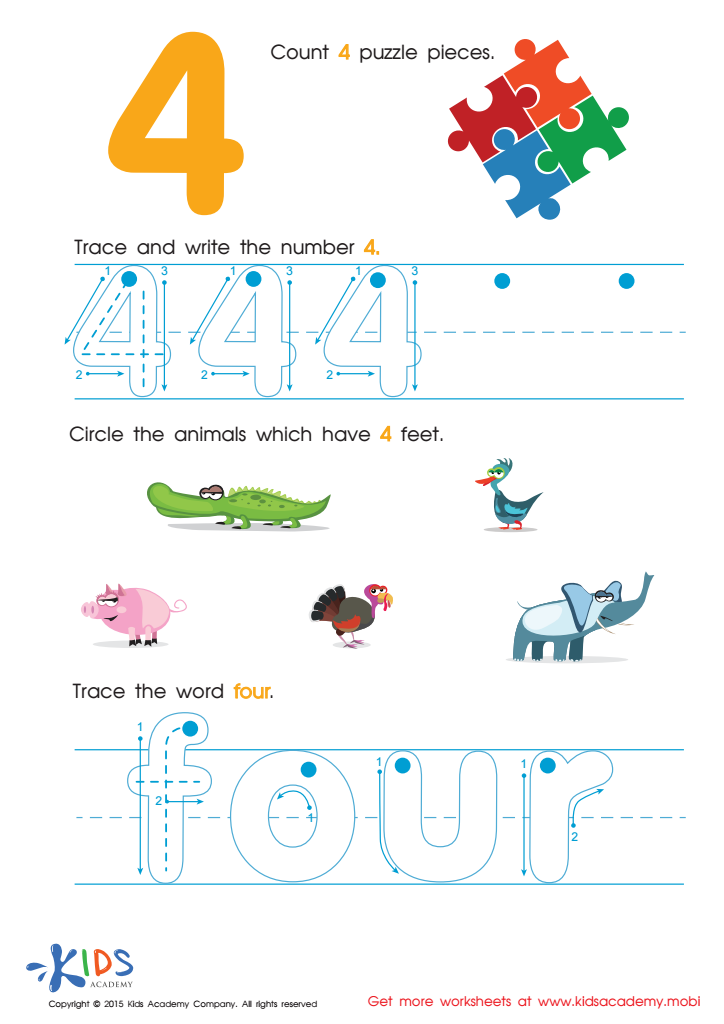

Teaching Children to Write Number 4 Worksheet
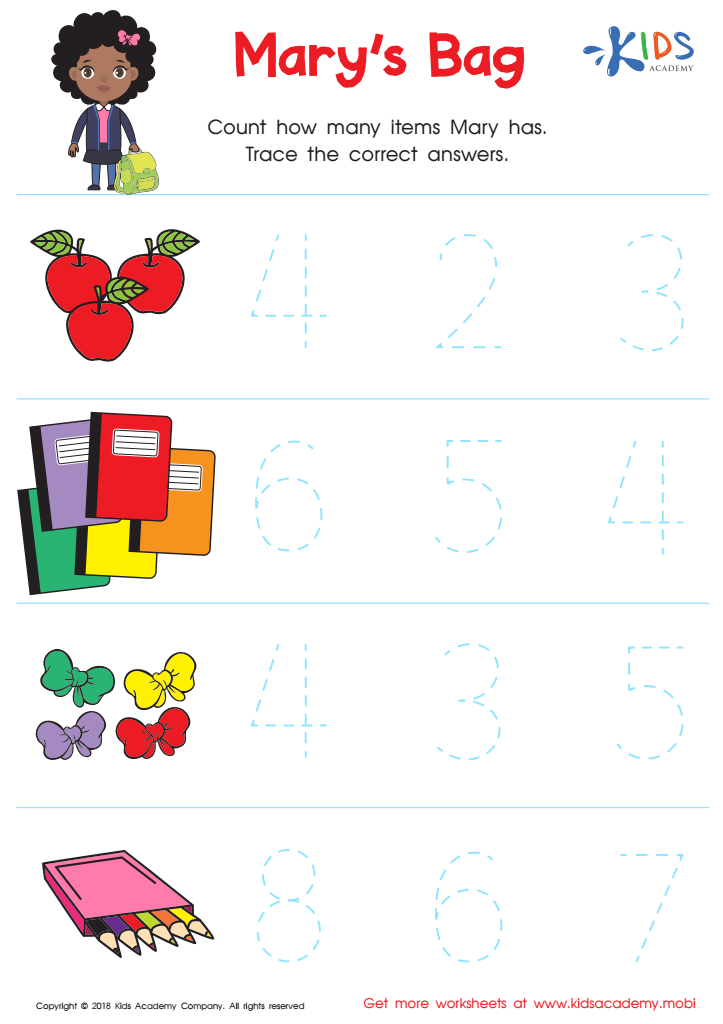

Kindergarten Number Tracing: Mary's Bag Worksheet
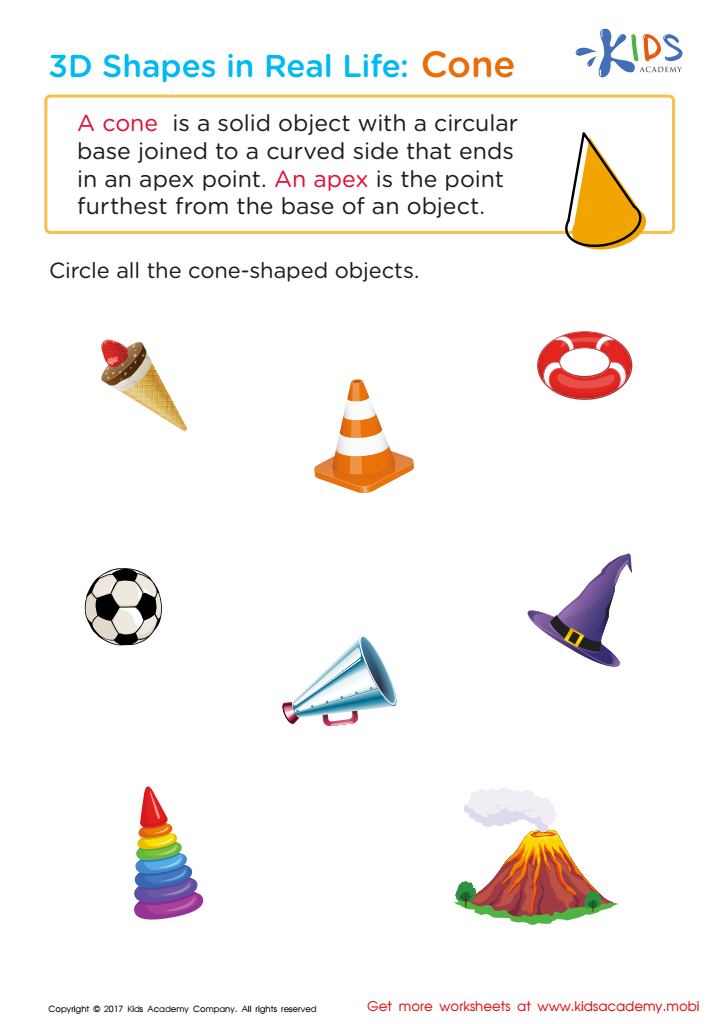

Shapes in Real Life: Cone Worksheet


Number 3 Worksheet
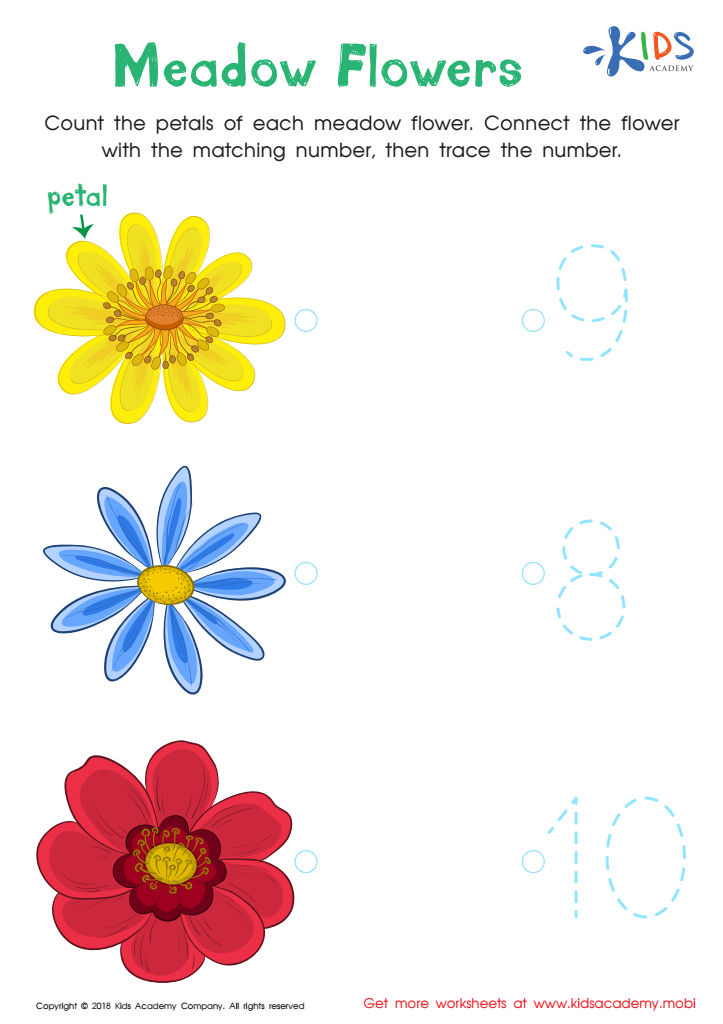

Kindergarten Number Tracing: Medow Flowers Worksheet
Handwriting skills are integral to the developmental journey of children aged 4-6, encompassing both cognitive and motor abilities that are crucial for learning. At this early stage, handwriting not only aids in literacy development but also reinforces mathematical skills by enabling children to express their understanding of numbers and operations effectively. When children engage in writing numbers, they develop fine motor skills and hand-eye coordination, essential for precise movements in both writing and math tasks.
Furthermore, good handwriting fosters a sense of confidence and accomplishment in young learners. By being able to neatly write numbers and math symbols, children are more likely to engage positively with math concepts, reducing anxiety associated with mathematical expression. Parents and teachers should provide opportunities for children to practice handwriting in a fun and engaging manner, as this foundational skill can influence their overall academic performance and attitudes towards learning.
Lastly, strong handwriting skills cultivate focus and attention to detail, qualities that are vital in all academic subjects. Therefore, emphasizing handwriting in early education, especially in math, lays the groundwork for better cognitive processing and encourages an enduring interest in both writing and numeracy skills.

 Assign to My Students
Assign to My Students



















